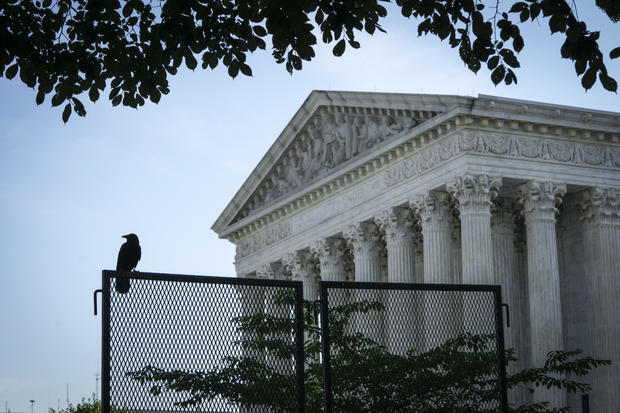Supreme Court blocks Texas social media law
A divided Supreme Court has blocked a Texas law, championed by conservatives, that aimed to keep social media platforms like Facebook and Twitter from censoring users based on their viewpoints.
The court voted in an unusual 5-4 alignment Tuesday to put the Texas law on hold, while a lawsuit plays out in lower courts.
Chief Justice John Roberts and Justices Stephen Breyer, Sonia Sotomayor, Brett Kavanaugh and Amy Coney Barrett voted to grant the emergency request from two technology industry groups that challenged the law in federal court.
The majority provided no explanation for its decision, as is common in emergency matters on what is informally known as the court's "shadow docket."
Justices Clarence Thomas, Samuel Alito, Elena Kagan and Neil Gorsuch would have allowed the law to remain in effect.

In dissent, Alito wrote, "Social media platforms have transformed the way people communicate with each other and obtain news."
It's not clear how the high court's past First Amendment cases, many of which predate the internet age, apply to Facebook, Twitter, TikTok and other digital platforms, Alito wrote in an opinion joined by fellow conservatives Thomas and Gorsuch but not Kagan.
The order follows a ruling last week by the 11th U.S. Circuit Court of Appeals that found a similar Florida law likely violates the First Amendment's free speech protections.
Republican elected officials in several states have backed laws like those enacted in Florida and Texas that sought to portray social media companies as generally liberal in outlook and hostile to ideas outside of that viewpoint, especially from the political right.
The Texas law was initially blocked by a district judge, but then allowed to take effect by a panel of the New Orleans-based 5th U.S. Circuit Court of Appeals.
- In:
- Supreme Court of the United States
Disclaimer: The copyright of this article belongs to the original author. Reposting this article is solely for the purpose of information dissemination and does not constitute any investment advice. If there is any infringement, please contact us immediately. We will make corrections or deletions as necessary. Thank you.







